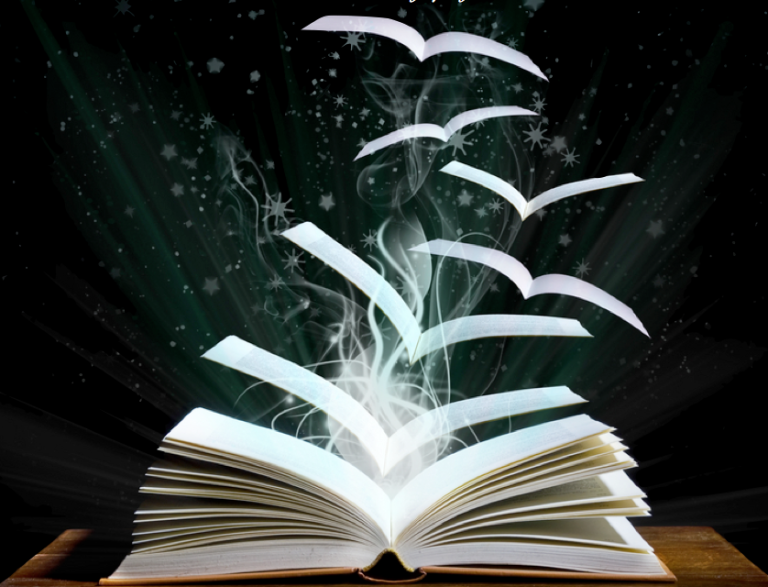Masterful Voice in Novels Part 4
Last week I discussed how important it is to have conflict on every page. And I shared the Faulkner quote that author Colum McCann referenced: “The only thing that matters is the human heart in conflict with itself.”
That might not be the only thing that matters when it comes to crafting a masterful voice in your writing, but it’s an important one, to be sure.
I believe literary agent and author Donald Maass is spot-on when he teaches that microtension is the key to writing a terrific novel. Without it, a novel is flat, struggling to keep a reader’s attention.
Microtension is exactly what it sounds like: it comprises all those tiny bits that give a reader pause. Contradictions in words and phrases, unspoken mysteries and clues, incongruities, hints of danger or trouble on some level. Microtension depends on what is not being said, on subtext. It’s like a that tightrope wire McCann wrote about in Let the Great World Spin, which I shared last week.
Those little bits sprinkled throughout every page remind me of sparking gems scattered across a beach of endless, colorless sand. As a reader, I think I essentially read as if I were a beachcomber, rushing from one glittering gem to the next, gathering them up and making my way down the beach.
 I used to be an avid agate collector. My family had a house overlooking Agate Beach on the north California coast. I couldn’t begin to guess how many hours (hundreds, no doubt), I spent scouring the beach after a storm, sifting through the piles of rocks snaking along the water’s edge, for the elusive agate. I have jars, even glass-topped coffee tables (that I built specifically to showcase my treasures), filled with all the agates I found.
I used to be an avid agate collector. My family had a house overlooking Agate Beach on the north California coast. I couldn’t begin to guess how many hours (hundreds, no doubt), I spent scouring the beach after a storm, sifting through the piles of rocks snaking along the water’s edge, for the elusive agate. I have jars, even glass-topped coffee tables (that I built specifically to showcase my treasures), filled with all the agates I found.
Are they worth anything? Not at all. But when you’re on the hunt, possessed by agate fever, you can’t stop. You have to find just one more. That one might be the big one. Or the most beautiful. There is no better day on the beach when you get to head home with your pockets (or bags) full of agates.
Maybe this is an odd analogy to you, but I’m hoping to get you to consider the importance of microtension in order to create a masterful voice. You want to evoke a tiny spark of surprise. A turn of phrase, an unusual word, an incongruous thought or gesture, an unexpected attitude or response, a curious analogy—those are what create microtension. Precious gems scattered through the pages of a novel.
As we’ve looked it in the previous posts, voice is about the POV character (who could also be an omniscient narrator). People who are boring to listen to, who drone on and on saying little of interest, will lose our attention quickly.
 Go talk up people at a coffee shop and see how long you can keep their interest in a conversation with you by chatting about the most mundane, ordinary things. Or listen (politely eavesdrop) as people talk about their day to one another. Most ordinary conversations are boring, but we rarely have to engage in or listen to them for very long.
Go talk up people at a coffee shop and see how long you can keep their interest in a conversation with you by chatting about the most mundane, ordinary things. Or listen (politely eavesdrop) as people talk about their day to one another. Most ordinary conversations are boring, but we rarely have to engage in or listen to them for very long.
However, a novel is akin to a ten-hour (or more) “conversation” between author and reader. As a writer, we should do all we can to make every sentence on every page engaging. How to do that? Microtension.
Let’s take a look at another passage from Colum McCann’s breathtakingly beautiful novel Let the Great World Spin. His novel isn’t a linear plot featuring a protagonist going after a goal. It’s a collection of vignettes showing a handful of characters on one particular day in New York. It’s his masterful voice that garnered him the National Book Award.
I walked toward the projects. A surge of dread. Hard to calm the heart when it leaps so high. As a child I saw horses trying to step into rivers to cool themselves off. You watch them move from the stand of buckeye trees, down the slope, through the mud, swishing off flies, getting deeper and deeper until they either swim for a moment or turn back. I recognized it as a pattern of fear, that there was something shameful in it—these high-rises were not a country that existed in my youth or art, or anywhere else. I had ben a sheltered girl. Even when drug-addled I would never have gone into a place like this. I tried to persuade myself onward. I counted the cracks in the pavement. Cigarette butts. Unopened letters with footprints on them. Shards of broken glass. Someone whistled but I didn’t look his way. Some pot fumes drifted from an open window. For a moment, it wasn’t like I was entering water at all: it was more like I was ferrying buckets of blood away from my own body, and I could feel them slap and spill as I moved.
The dry brown remnants of a floral wreath hung outside the main doors. In the hallway the mailboxes were dented and scorch-marked. There was a reek of roach spray. The overhead lights were spray-painted black for some reason.
A large middle-aged lady in a floral-patterned dress waited at the elevator. She kicked aside a used needle with a deep sigh. It settled into the corner, a small bubble of blood at its tip. I returned her nod and smile. Her white teeth. The bounce of imitation pearls at her neck.
—Nice weather, I said to her, though both of us knew exactly what sort of weather it was.
The elevator rose. Horses into rivers. Watch me drown.
I said good-bye to her on the fifth floor as she continued upward, the sound of the cables like the crack of old branches.
A few people were gathered outside the doorway, black women, mostly, in dark mourning clothes that looked as if they didn’t belong to them, as if they’d hired the clothes for the day. Their makeup was the thing that betrayed them, loud and gaudy and one with silver sparkles around her eyes, which looked so tied and worn-down. The cops had said something about hookers: it struck me that maybe the young girl had just been a prostitute. I felt a momentary sigh of gratitude, and then the awareness stopped me cold, the walls pulsed in on me. How cheap was I?
What I was doing was unpardonable and I knew it. I could feel my chest thumping in my blouse, but the women parted for me, and I went through their curtain of grief.
I chose this passage because it’s what I would consider a low-action bit. In our novels, we have to write sequences in which our characters are moving from one place to another, doing “ordinary” things. Those are the types of passages that tend to be boring, but we know we have to include them. They are needed for cohesion.
McCann describes the action through this POV character, Lara, as she heads to a part of New York she is wholly uncomfortable visiting. Yet, she feels compelled to pay her respects to a young woman she had inadvertently killed in a car accident. McCann uses the analogy of horses entering water for his character to think of, in comparison to what she is doing. It’s an unexpected type of analogy for a character in the bowels of New York City.
He points out the small things she notices: cracks in the sidewalk, cigarette butts, the needle with a bubble of blood in it. They are like brushstrokes of setting that tell a lot about Lara as well as bring the setting into sharp focus. We get the mystery of the weather: two women knowing exactly what kind of weather it really is.
There are the elevator cables that sound like the crack of old branches. The beautiful phrases: the elevator rising, horses into water as she ascends, “Watch me drown.” The ferrying of “buckets of blood” that slap and spill.
These small bits of phrasing, unexpected and unusual, are what create microtension in an otherwise ordinary segment of moving a character from one place to another. And that’s what separates good writing from masterful writing.
Your thoughts on microtension and today’s passage?
Do you really want to master plotting and scene structure?
 There’s still time to book your space in this year’s boot camps!
There’s still time to book your space in this year’s boot camps!
Some great instructors will be joining me to teach intensive 2- and 3-day boot camps this fall in gorgeous South Lake Tahoe, CA. Dates: Sept. 23 – Oct. 4.
Plotting Madness teaches you how to go from idea to complete novel outline in 3 days! If you are serious about becoming a successful novelist, you need to master this!
Carla King will be teaching the Self-Publishing Boot Camp: a must for any author of fiction or nonfiction who plans to self-publish or who is already struggling to learn the best ways and practices.
The Scene Structure Boot Camp will teach you how to craft terrific scenes and master evoking emotion in your readers. There is so much to learn about great scene structure!
These aren’t just talks. Boot camp is all about brainstorming with others and sharing ideas and writing. It’s intimate, intensive, and targeted. And it all takes place in a mansion, with indoor pool and sauna, hot tub, gourmet breakfast, lunch, and so much more!
Read more about the boot camps HERE, then fill out the brief survey to let us know which boot camp(s) you want to attend. NOTE: You must grab your space ASAP, this month.












Passage is extraordinary – something to strive for.
This makes sense. I have read some books that seem to go on and on yet say next to nothing, and I quickly lose interest. As to the passage you have chosen, it does indeed bring many aspects of the scene into view, but on reading it, I know I would never want to read that book. No offense intended for the author. It is simply not something that would interest me personally though it is well-written. Thanks for your post.
Another great post, Suzanne. Some microtension must come from the setup. We know Lara isn’t from the projects, and we know she killed the girl in a hit and run and should stay miles away from that place, so the tension is already on the page when the scene opens.
I have no business in the world criticizing McCann’s writing but just to address your point of microtension: The horse analogy doesn’t work for me. Not only is it incongruous, it’s hard to understand. I don’t know what horses feel so it doesn’t tell me anything about the MC.
I liked: Unopened letters with footprints on them. That’s wonderfully evocative of place. Shards of broken glass [? Aren’t all shards broken?] Someone whistled but I didn’t look his way. [?Must have been a wolf-whistle? Why the last two words?] Buckets of blood… [Too much. What’s the point?] Pot fumes? What are those?
— Nice weather, I said to her, though both of us knew exactly what sort of weather it was.[When the text reveals MC’s anxiety like this and is not just writing for its own sake, it grabs me.]
The elevator rose. Horses into rivers. Watch me drown.[I love that — even without the earlier reference to horses. It stands. Drowning while going up? Terrific.]
For me, the “voice” comes through in a single sentence: What I was doing was unpardonable and I knew it. That’s a knockout statement but it is offered, strangely, as a throwaway line. Maybe that’s the secret to McCann’s success in this novel, the subtlety of the revelations. Claire’s “upper-east-side” epiphany last week was a revelation of similar proportion. Like the snowy ending of “The Dead” in Dubliners — just a glimpse of the inner landscape. I don’t know.
I’m still thinking of signing up for editing from you. Meanwhile, I’m learning from the blog. Thanks.